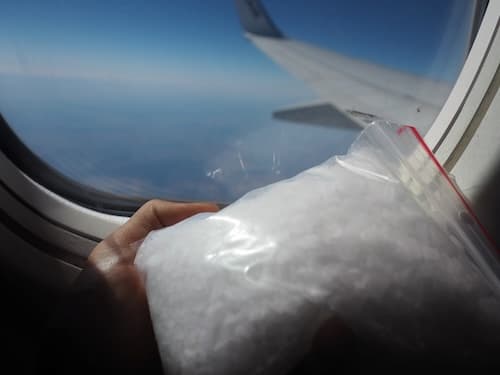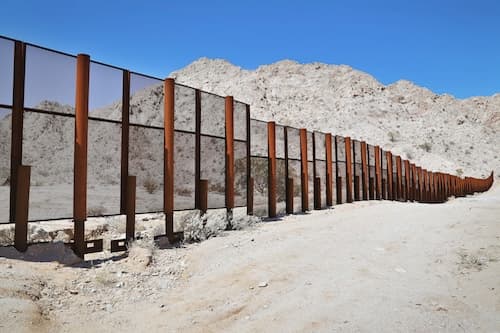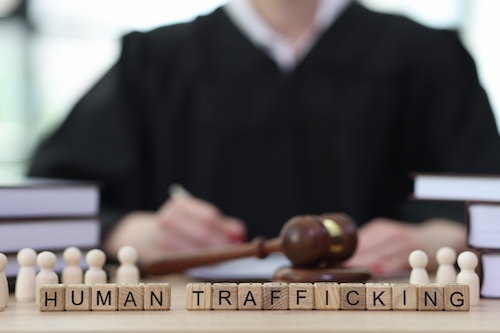Understanding the Complexities of International Smuggling and Legal Challenges
International smuggling is a complex and widespread global issue that involves the illegal transport of goods, people, and substances across borders, bypassing national laws. While many associate smuggling primarily with drugs, the scope of international smuggling extends to various illicit activities, including migrant smuggling, human trafficking, and narcotic distribution.
The collision of national and international laws creates both opportunities and challenges for law enforcement agencies attempting to combat these illegal operations. If you’re facing charges related to international smuggling, consulting a smuggling defense lawyer is essential to navigate these intricate legal battles. This blog explores what happens when federal and international laws collide in smuggling cases and highlights the cooperation needed to address this growing global issue.
What is International Smuggling?
International smuggling refers to the illegal transportation of people, goods, or substances across international borders. The most common forms of international smuggling include drug smuggling, migrant smuggling, and human trafficking. These smuggling operations span land, sea, and air routes, and can involve individuals or sophisticated criminal organizations.
Drug Smuggling
Drug smuggling is perhaps the most notorious form of international smuggling. Smuggling drugs like cocaine, heroin, and methamphetamine through various routes—including sea routes and land routes—remains a major concern for federal authorities across the world. Drug smuggling often involves transnational criminal networks that exploit vulnerabilities in national border security systems. Narcotics smuggling is a massive financial industry, and it contributes to the proliferation of violence and crime worldwide.
Migrant Smuggling
In recent years, migrant smuggling has emerged as one of the most concerning aspects of international smuggling. Smuggled migrants—people who are transported across borders illegally—often seek to reach destination countries in search of a better life. However, the journey is fraught with danger, as migrants are vulnerable to exploitation, violence, and even death during their journey. Migrant smugglers charge exorbitant fees for their services, subjecting the migrants to physical and emotional abuse.
Human Trafficking
Human trafficking is another form of international smuggling that thrives in the shadows. Victims of human trafficking are often irregular migrants, many of whom have been smuggled across borders with the promise of work, but end up enslaved in exploitative conditions. These traffickers prey on the vulnerability of migrants, often through corruption or coercion, and profit from the forced labor or sexual exploitation of their victims.
Smuggling Routes: Land, Sea, and Air
The methods used in international smuggling vary significantly, with routes that cross national borders, leading to significant challenges for federal authorities and international agencies. Understanding the logistics of these routes is key to understanding how law enforcement combats smuggling.
Land Routes
Land routes are frequently used in international smuggling, especially for drug and migrant smuggling. Smugglers often take advantage of porous borders and weaknesses in border enforcement to transport illicit goods and people across countries. The risk of detection is high, but so is the potential reward. Migrants seeking to cross transit countries on their way to destination countries are often packed into trucks, hidden in cargo shipments, or forced to walk across dangerous terrain. These routes are also exploited for the transportation of drugs like cocaine, heroin, and methamphetamine. While law enforcement agencies make significant efforts to patrol land borders, the sheer volume of traffic makes it difficult to prevent smuggling.
Sea Routes
Sea routes are another popular choice for smugglers. Smuggling drugs via the ocean is notoriously difficult to detect, as smugglers use cargo ships or fishing vessels to conceal illegal shipments. The Mediterranean Sea, in particular, is a key area for migrant smuggling, as migrants flee conflict or poverty from regions like North Africa or the Middle East. Many migrants attempt to reach European shores by crossing the Mediterranean in overcrowded, unseaworthy boats. Unfortunately, this often results in death or disappearance, further complicating the work of federal and international law enforcement.
Air Routes
While less common, air smuggling is also a growing concern. Criminal organizations have used commercial flights, private planes, and even drones to transport narcotics, weapons, and human trafficking victims across international borders. Air smuggling can involve both legal and illegal goods, and it often requires a high level of coordination to bypass airport security and customs systems.
Federal Authorities and International Collaboration
When it comes to combating international smuggling, cooperation between federal and international agencies is crucial. Federal agencies like the U.S. Customs and Border Protection (CBP), the Drug Enforcement Administration (DEA), and the Federal Bureau of Investigation (FBI) often work with their counterparts in other countries to tackle smuggling operations. This collaboration is particularly essential when it comes to migrant smugglers and human trafficking, where international coordination is needed to dismantle smuggling rings that operate across borders.
Databases and Intelligence Sharing
One of the most effective ways law enforcement agencies work together is through intelligence sharing and the use of linked databases. These databases allow agencies to track smuggling routes, monitor suspicious activity, and gather evidence for investigations. For example, information from interpol databases can help federal investigators uncover patterns and link criminal activities across multiple jurisdictions.
International Agreements
Countries have also signed several international agreements to improve collaboration in combating international smuggling. These agreements often focus on human rights, the protection of victims, and the disruption of criminal networks. The United Nations Convention Against Transnational Organized Crime, for instance, provides a framework for international cooperation in tackling smuggling, human trafficking, and drug crimes. Additionally, state parties to such agreements commit to enhancing their legal frameworks and enforcement mechanisms to better address these issues.
Legal Frameworks and Challenges in Addressing International Smuggling
Despite efforts by international agencies and federal authorities, combating international smuggling remains a complex challenge. The primary issue lies in the fact that the laws governing smuggling and trafficking differ across countries. In many cases, national laws are inconsistent with international laws, creating gaps that criminals can exploit.
Contradictory Laws
In some countries, migrant smuggling is treated as a criminal offense, while in others, it is considered a humanitarian issue. This discrepancy complicates efforts to ensure the safe and legal treatment of smuggled migrants. Similarly, while narcotics smuggling is universally condemned, legal ambiguities in international laws regarding the movement of drugs can lead to inconsistencies in how smugglers are prosecuted. Smuggling services often take advantage of these inconsistencies, making it harder for authorities to establish coordinated enforcement.
Punishments and Penalties
The penalties for international smuggling vary significantly depending on the nature of the crime and the jurisdiction. In some countries, migrant smugglers face severe criminal sentences, while in others, penalties may be more lenient. Federal agencies often struggle with prosecuting smugglers, especially when the evidence is scattered across multiple jurisdictions. Some smugglers have even found ways to evade law enforcement by using false documents or corrupt officials to ensure the safe passage of illicit goods.
The Socioeconomic Drivers of Smuggling
The increasing volume of international smuggling can be largely attributed to the socioeconomic conditions in countries of origin. Poverty, conflict, and corruption all play key roles in driving individuals to seek out smuggling services in the hope of escaping their current circumstances.
Poverty and Conflict
Many of the smuggled migrants originate from poverty-stricken or war-torn regions like North Africa or the Middle East. Desperate for a better life, they turn to migrant smugglers who promise a safer route to their destination countries. In addition, drugs are smuggled in part due to the demand for substances like cocaine and methamphetamine in wealthier nations. Smuggling these goods provides criminals with profit that is reinvested into further smuggling operations, fueling the cycle of crime.
Corruption and Exploitation
Corruption within transit countries and destination countries often facilitates smuggling operations. Smugglers and traffickers often bribe local officials to look the other way, or even actively assist in the movement of smuggled goods and migrants. This corruption undermines the efforts of federal authorities and international organizations, making it difficult to break up criminal networks.
Federal Investigations and Interventions
The investigation of international smuggling operations requires immense coordination and resources. Federal investigators work tirelessly to track down migrants, criminals, and smuggling rings operating across international borders. Using a combination of intelligence, surveillance, and undercover operations, these agencies work to apprehend smugglers and traffickers. These investigations often span years, as smuggling networks operate across multiple regions and use a variety of sophisticated methods to evade detection.
Apprehension and Protection
While apprehending smugglers is crucial, it is equally important to protect the smuggled migrants. Law enforcement agencies, alongside international organizations like the International Organization for Migration (IOM), work to ensure the safety of victims and provide them with legal and psychological support.
Why Hire a Lawyer for International Smuggling Charges?
Why do I need a lawyer for international smuggling charges?
When facing international smuggling charges, having an experienced criminal defense lawyer is crucial. Smuggling cases, such as migrant smuggling, drug trafficking, and human trafficking, often involve complex legal issues that span multiple jurisdictions. An attorney specialized in international law can guide you through the challenges of these cases, including jurisdictional issues, international treaties, and conflicting national and federal laws. A lawyer will also ensure that your rights are protected during the investigation and legal proceedings, and help build a defense that may reduce charges or lead to a more favorable outcome.
What should I look for when hiring a lawyer for international smuggling charges?
When hiring a lawyer for international smuggling charges, it’s important to consider their experience in handling cross-border criminal cases and their familiarity with international legal frameworks. Look for a lawyer who has handled cases involving drug smuggling, migrant trafficking, or human trafficking, and who understands the challenges posed by extradition and international cooperation. Additionally, a strong defense lawyer should be knowledgeable about federal law and able to navigate complex situations involving multiple legal systems and jurisdictions. Their ability to analyze evidence, challenge prosecutorial tactics, and represent your best interests in court is key to a successful defense.
How can a lawyer help with migrant smuggling charges?
If you’re facing migrant smuggling charges, a smuggling defense lawyer can provide invaluable support. Migrant smuggling cases are often complex due to the involvement of multiple countries and the application of both national and international laws. A lawyer will help you understand the legal nuances of your case, including the laws governing illegal entry, migrant exploitation, and the potential penalties for smuggling migrants across international borders. With the help of an attorney, you can navigate the legal proceedings, challenge unlawful evidence, and ensure that you have the best possible chance of a favorable outcome, such as reduced charges or dismissal.
What are the penalties for international smuggling, and how can a lawyer help reduce them?
The penalties for international smuggling, whether it involves drugs, migrants, or trafficking, can be severe, including long prison sentences and heavy fines. However, a skilled lawyer can help minimize these penalties by evaluating your case, identifying weaknesses in the prosecution’s argument, and potentially negotiating plea deals. In cases of migrant smuggling or drug trafficking, a lawyer may be able to argue mitigating factors such as lack of intent, duress, or involvement in a larger criminal network. Additionally, an experienced attorney will be able to represent you in international courts or federal courts, working to reduce your sentence or secure a more lenient outcome.
How does a lawyer handle cases involving multiple countries and legal systems?
International smuggling cases often involve multiple countries and legal systems, creating a highly complex scenario for anyone charged with such offenses. A criminal defense lawyer who specializes in international smuggling understands the intricacies of extradition treaties, cross-border enforcement, and international human rights laws. They will work to ensure that the charges you face are fair and that the prosecution complies with relevant international agreements. By coordinating with law enforcement agencies in other countries and understanding how jurisdiction works in these cases, your lawyer can help manage the complexities of having a case that spans multiple legal systems.
How can a lawyer help with human trafficking charges related to international smuggling?
If you’re charged with human trafficking in connection with international smuggling, an attorney will help you understand the gravity of the situation and the serious consequences you may face. Human trafficking charges often involve smuggled migrants, and the legal complexities of these cases can make a significant difference in your defense. A lawyer specializing in human trafficking law can analyze the case to see if your rights were violated, challenge evidence that was improperly gathered, and work toward a defense based on any possible misidentifications or wrongful actions on the part of law enforcement. They may also help negotiate a plea or fight for reduced charges by proving a lack of intent or participation in the criminal activity.
Can a lawyer help with drug smuggling charges across international borders?
Yes, a lawyer is crucial if you’re facing drug smuggling charges that involve international borders. Smuggling narcotics like cocaine or heroin across international boundaries is a serious federal offense, and the consequences can be severe. A lawyer with experience in drug smuggling will be well-versed in federal drug laws, international drug trafficking treaties, and jurisdictional issues that may arise in cross-border cases. They can challenge the evidence presented against you, explore any constitutional violations during your arrest or investigation, and work toward reducing your charges or negotiating a plea deal. The lawyer will also assist in managing any extradition issues if you are facing charges in another country.
What role does a lawyer play in international investigations for smuggling?
During an international smuggling investigation, your lawyer plays a crucial role in protecting your rights. If you’re under investigation for smuggling, whether it involves drugs, migrants, or human trafficking, an experienced lawyer can ensure that all investigative actions, such as surveillance, wiretaps, or interrogations, are legally justified. They will also help you understand the potential consequences of cooperating with international authorities or fighting extradition if the case crosses multiple jurisdictions. By closely monitoring the legal process, a lawyer ensures that your case is handled with transparency and fairness, challenging any violations of your rights and providing the best possible defense.
Why is international legal expertise important when hiring a lawyer for smuggling charges?
International legal expertise is vital when facing smuggling charges that involve multiple countries and legal systems. A criminal defense lawyer with experience in international smuggling understands the nuances of cross-border law, extradition procedures, and international treaties that may affect your case. Smuggling offenses, whether they involve drug trafficking, human trafficking, or migrant smuggling, often require navigating complex relationships between federal authorities, international agencies like Interpol, and the legal systems of various countries. A lawyer’s expertise in these areas ensures that all aspects of your case are thoroughly examined and that your rights are upheld throughout the legal process.
What should I expect from a lawyer handling my international smuggling case?
When hiring a lawyer for your international smuggling case, you should expect a dedicated legal professional who will conduct a thorough investigation into the circumstances of your arrest and charges. Your lawyer will evaluate the evidence, consult with international authorities if necessary, and formulate a defense strategy tailored to your specific situation. Whether the charges involve migrant smuggling, drug trafficking, or human trafficking, the lawyer will work tirelessly to defend your rights, minimize your exposure to penalties, and seek the most favorable outcome possible. Additionally, they will keep you informed of any developments in your case and guide you through the often complex procedures that come with international smuggling charges.
Defend Your Rights with the Experts at Cowboy Law Group
At Cowboy Law Group, we understand the complexities of smuggling and immigration law, and we’re here to fight for your rights. Whether you’re facing smuggling-related charges or need guidance navigating international legal matters, our experienced team is committed to delivering aggressive defense strategies tailored to your case. Don’t navigate the legal system alone – trust the Cowboy Law Group to stand by your side every step of the way.
Contact Cowboy Law Group today 832-326-2932 for a free consultation and let us protect your future.










